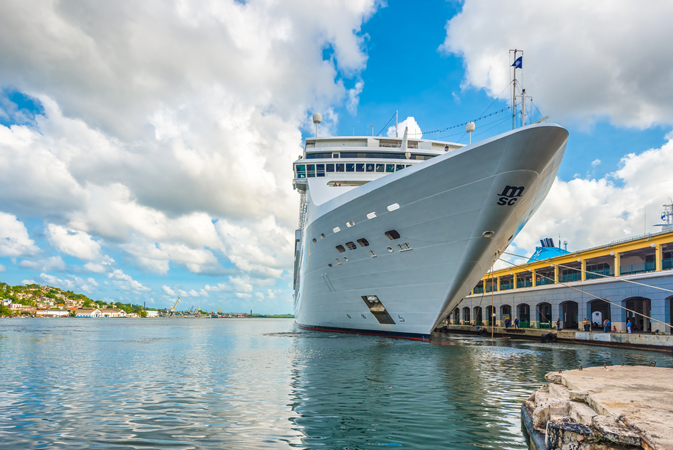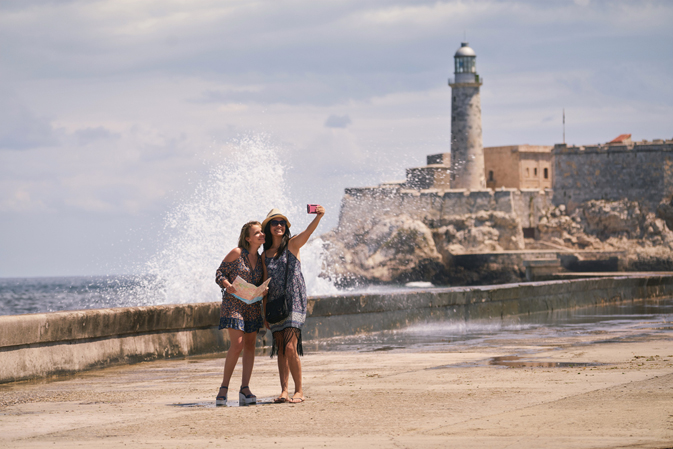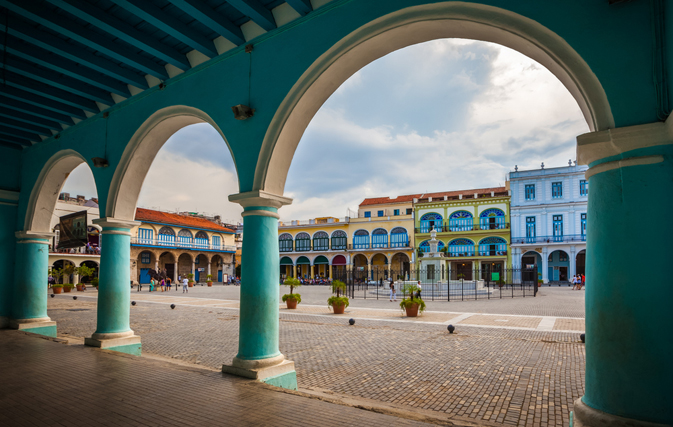TORONTO — Cruise lines sailing into Cuba are happy with President Trump’s new Cuba policy – and no doubt so are Canadian sun vacation clients worried that the U.S. tourism invasion would forever change one of their favourite vacation spots. Meanwhile world tourism organizations from the UNWTO to the WTTC are railing against Trump’s decision to roll back his country’s Cuba policies to pre-Obama days, clamping down on individual travel to the island.
As Travelweek.ca reported on June 16, U.S. travellers to Cuba will once again be required to visit the island as part of organized tour groups run by American companies. Then-President Barack Obama eliminated the tour requirement, allowing tens of thousands of Americans to book solo trips.
In a statement Carnival Corp. said it is “pleased that the policy changes announced by the Trump administration will allow our ships to continue to sail to Cuba. We will review the extent of the tightening of the travel rules, but our guests have already been travelling under the 12 approved forms of travel to Cuba since we undertook our historic first cruise to Cuba more than a year ago.
Carnival Corp. said its experience in Cuba this past year “has been extremely positive”. The cruise conglomerate added that it looks forward to upcoming Cuba cruises planned for Carnival Cruise Line and Holland America Line, and has requested approval for other Carnival Corp. brands to travel to Cuba. “Travel brings people and cultures together, so we are excited about the upcoming cruises to Cuba for our guests.”

The MSC Opera cruise ship docked at the port of Havana.
NCL and Royal Caribbean are also sailing into Cuba. On its Twitter blog on Friday, Royal Caribbean (@RoyalCaribbean) said its “pleased to share there is no impact to any of our cruises to Cuba as announced in the new U.S. policy toward Cuba today.”
At the other end of the spectrum, the UNWTO said it condemns the U.S. Administration’s decision to restore travel restrictions with Cuba, issuing a statement expressing its “firm resentment” over the decision. “This represents a step backwards and a strong attack on the freedom of travel,” said UNWTO Secretary-General Taleb Rifai.
“This decision will have limited impact on Cuba’s tourism development, yet it will substantially affect the US economy and American jobs,” added Rifai. “Many U.S. companies have started to invest in and do business with Cuba in view of the immense potential of Cuban tourism, which other countries will surely continue to benefit from.”
In 2016 Cuba received over four million international visitors, a growth of over one million in only five years.

Tourists in Havana
The United States Tour Operators Association (USTOA) also expressed its dismay at Trump’s decision.
Terry Dale, President and CEO of USTOA, said, “Easing the restrictions on travel to Cuba has enabled USTOA members and customers to see the true Cuba, without regulatory burdens that prior administrations have required. Those changes, along with scheduled air services, have produced enormous economic benefits for both the U.S. and Cuba.”
“By rolling back and tightening restrictions on U.S.-Cuba relations, the President is closing the door on positive opportunities that enable the travel and tourism industry to grow and compete with others around the globe,” said Dale.
David Scowsill, President & CEO, World Travel & Tourism Council (WTTC), noted that airlines, cruise lines and hotel groups have all made significant investments and plans to create jobs and to grow the industry in Cuba, based on clear direction from the previous administration. “Our sector needs consistency from governments and stability of policy. This is a clear and unwelcome reversal.”
Over the last months the uptake in travel from the US to Cuba has not been as high as expected, primarily as hotel capacity has not kept up with the demand, leading to some of the U.S. airlines cutting back capacity to the island. President Trump’s announcement will put further pressure on the airlines, Scowsill added. “U.S. citizens have been traveling as individuals rather than on group tours. Rolling back this policy and allowing U.S. citizens to only enter the country on organized tours, means that less tourism dollars will find their way to the Cuban people. Tourism is a force for good, it bridges gaps between cultures and empowers local people by creating jobs and income streams. We would urge the Trump administration to support the Cuban people.”
Matthew D. Upchurch, Chairman and CEO of Virtuoso, had this to say: “My dad was an industry pioneer who worked to open new tourism markets in India and Africa. Something he instilled in me through his own experience is the belief that limiting travel does not work for its intended purpose of creating an adverse economic impact. It only serves to perpetuate an ‘us against them’ mentality, which is the exact opposite of the uniting effect that travel has the power to do. Exposure between people not only fosters understanding, but robs governments of the narrative that ‘those people are evil.’”
A presidential memorandum gives the government 90 days before it even starts to rewrite Cuba travel regulations, meaning it could be months before it’s clear what the change means for American travellers, and the future of Cuba’s tourism industry.

